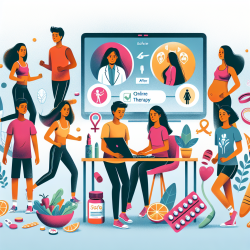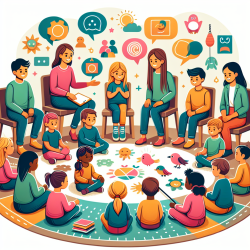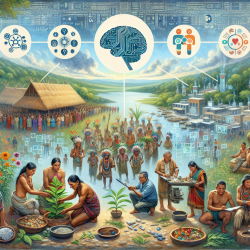Introduction
In the realm of health interventions for adolescents, particularly those belonging to American Indian communities, the "Respecting the Circle of Life: Mind, Body, and Spirit" program stands out as a pioneering initiative. This program, rigorously evaluated through a randomized controlled trial, targets the high rates of teen pregnancy and substance use among American Indian youth. By integrating cultural relevance with evidence-based strategies, this program aims to foster significant improvements in sexual and reproductive health outcomes.
Understanding the Need
American Indian adolescents face disproportionately high rates of teen pregnancy and substance use compared to their peers from other racial groups. According to the Centers for Disease Control and Prevention (CDC), American Indian/Alaska Native females aged 15 to 19 have some of the highest teen birth rates in the United States. Substance use is a significant risk factor for unprotected sex, exacerbating these challenges.
The Program's Approach
The "Respecting the Circle of Life" program was developed in collaboration with American Indian communities and incorporates a comprehensive sexual and reproductive health curriculum. The program includes:
- Eight lessons delivered during a summer basketball camp, focusing on sexual health education and skills training.
- A youth-parent component to enhance communication and support within families.
- Community health workers from the American Indian community administer the lessons, ensuring cultural relevance and acceptance.
Key Outcomes
The randomized controlled trial demonstrated several positive outcomes for participants:
- Increased condom use self-efficacy and intent to use condoms at next sexual encounter.
- Enhanced knowledge of sexual and reproductive health.
- Improved communication skills between adolescents and their parents or trusted adults.
These outcomes indicate the program's potential to reduce the incidence of teen pregnancy and sexually transmitted infections (STIs) among American Indian youth.
Implications for Practitioners
For practitioners working with American Indian communities, this program provides a valuable model for culturally tailored interventions. The integration of community involvement, cultural elements, and evidence-based practices can significantly enhance the effectiveness of health programs. Practitioners are encouraged to explore similar approaches in their work and consider the following:
- Engage with community leaders and stakeholders to ensure program relevance and acceptance.
- Incorporate cultural traditions and practices into program design.
- Utilize data-driven strategies to evaluate program effectiveness and make informed decisions.
Encouraging Further Research
While the "Respecting the Circle of Life" program has shown promising results, continued research is essential to refine and expand its impact. Practitioners and researchers are encouraged to conduct further studies to explore long-term outcomes and adapt the program for different contexts and communities.
To read the original research paper, please follow this link: Rigorous evaluation of a pregnancy prevention program for American Indian youth and adolescents: study protocol for a randomized controlled trial.










